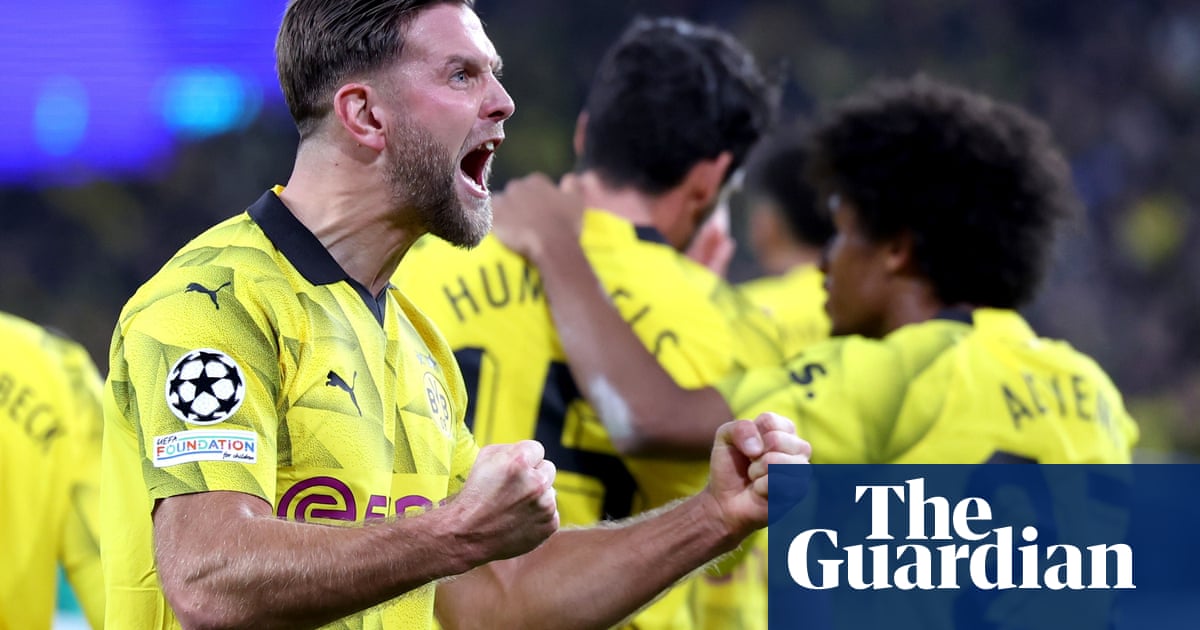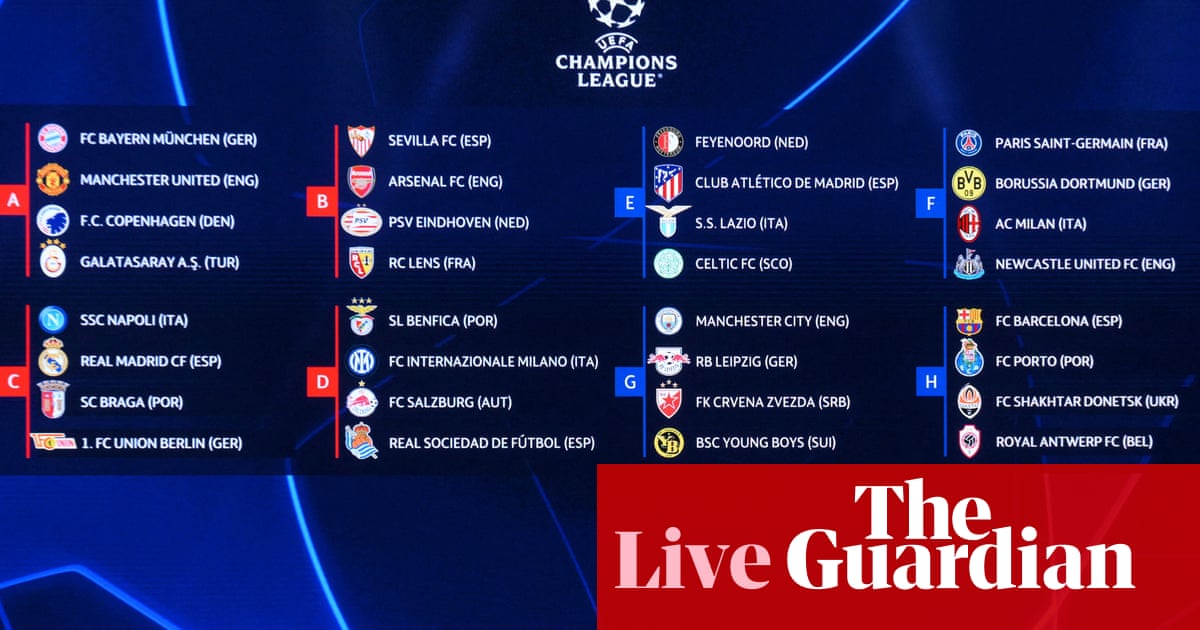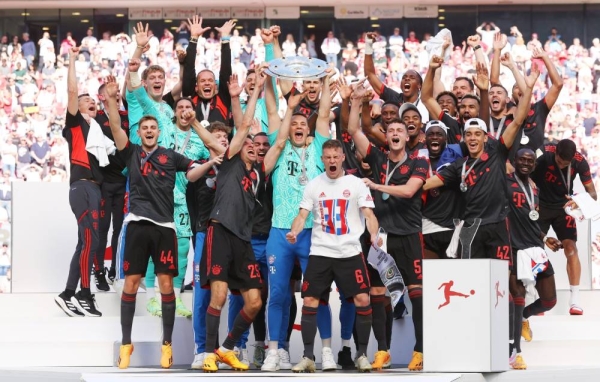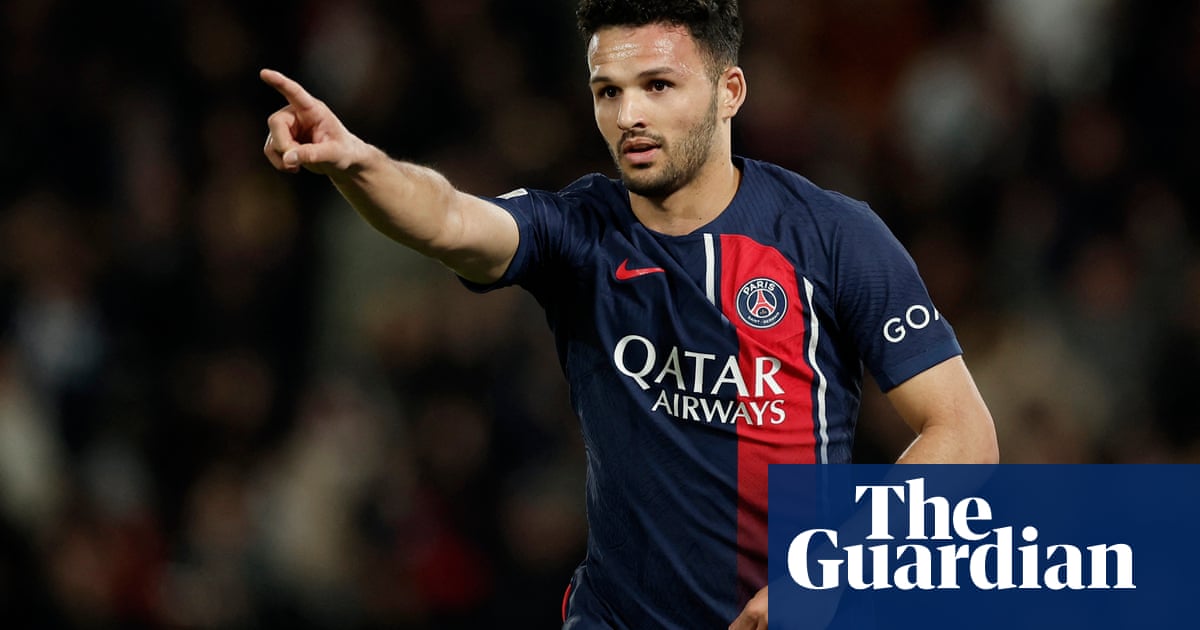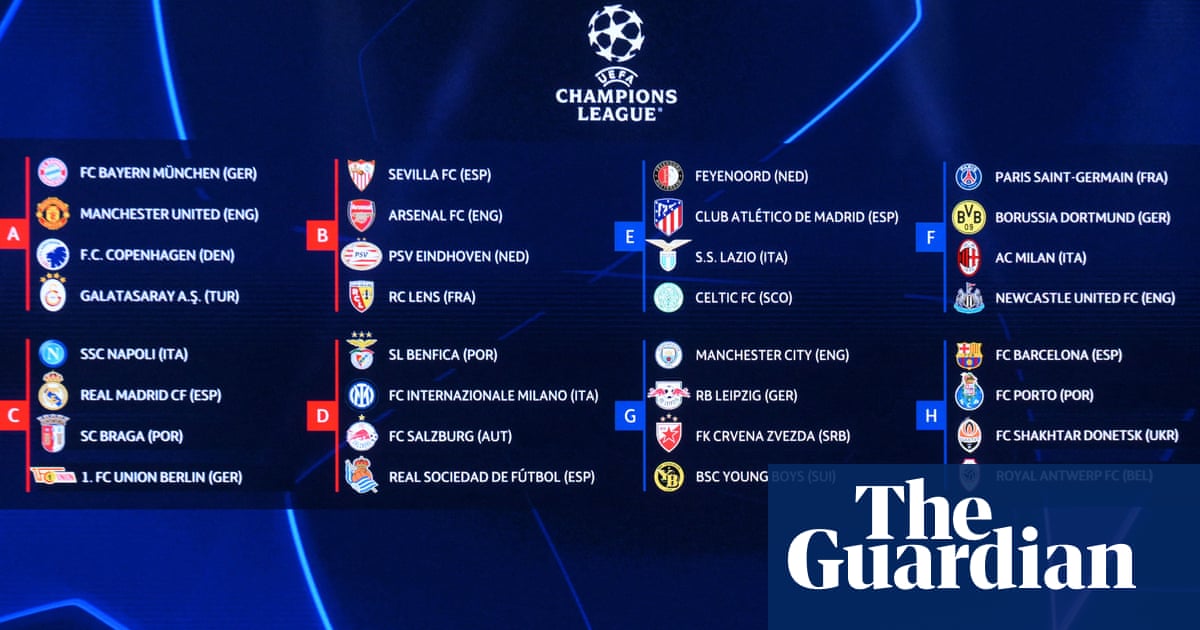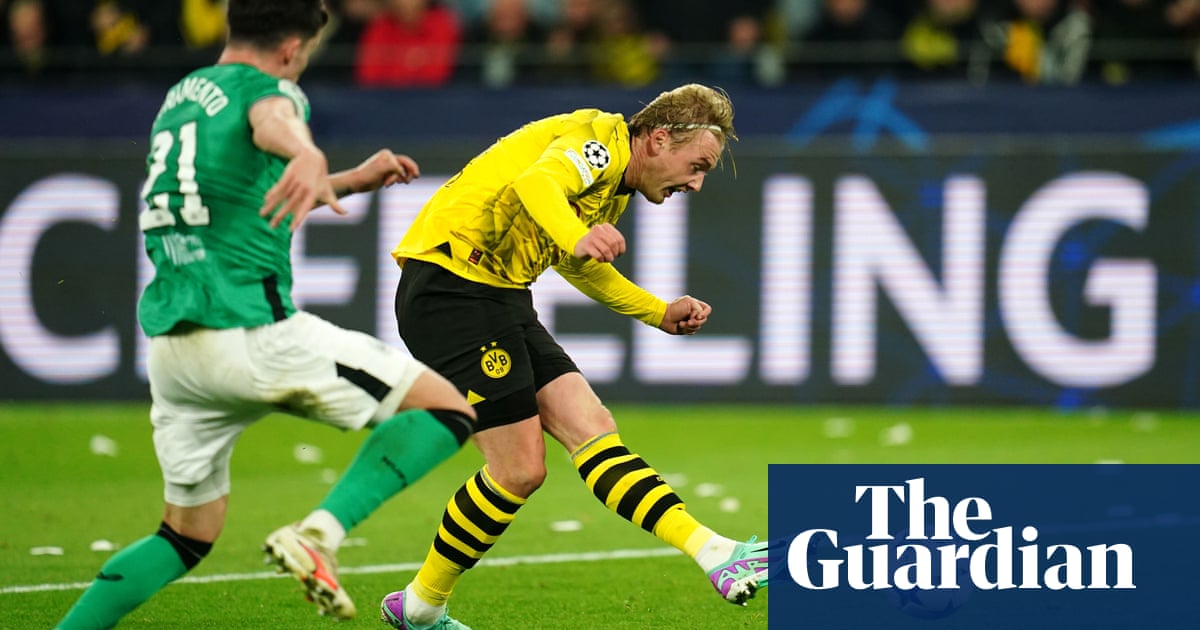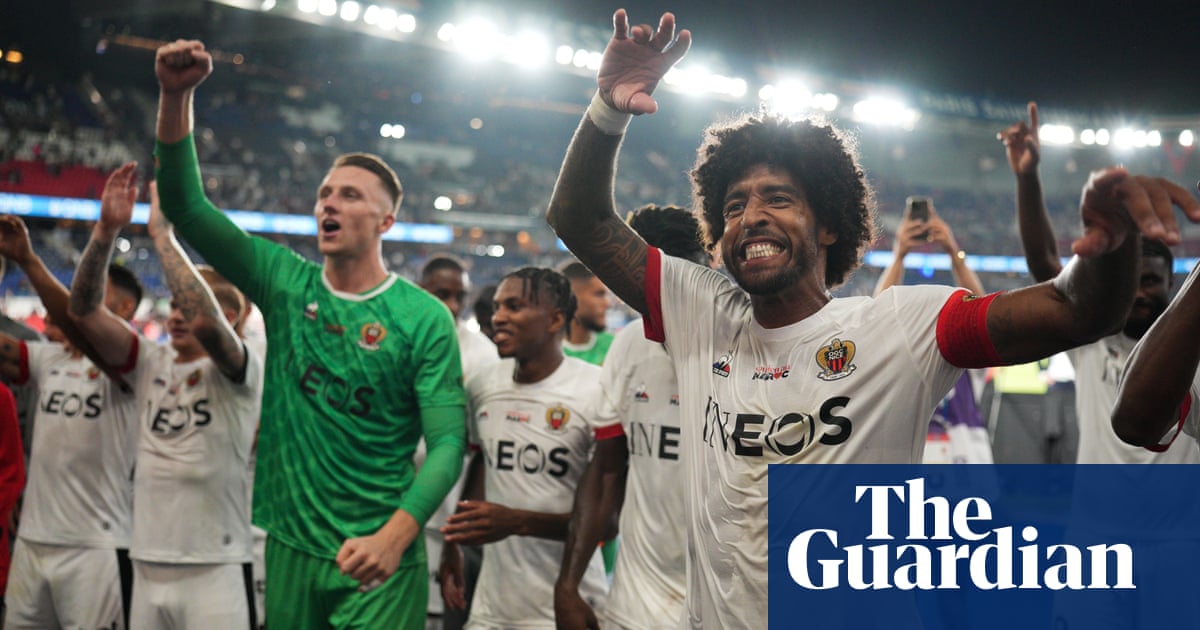
PSG’s 3-2 defeat at home to Nice this weekend offers a way forward for the three clubs who will visit Paris in the Champions League over the next few months. Nice, led by their dynamic new coach Francesco Farioli, pressed intelligently, countered hard and used the ball efficiently. These are the same challenges that PSG’s opponents will pose in their tough Champions League group – only at a higher level. Nice’s performance not only offered a blueprint for Newcastle, Dortmund and Milan to follow but also suggested that PSG’s campaign in Europe could be more about limiting damage than making progress.
Above all, the defeat showed that this is a PSG team still under construction. In possession, Luis Enrique’s new-look side often shift to a loose 4-1-5 shape with right-back Achraf Hakimi advancing further than the deeper, narrower Lucas Hernandez at left-back. The front five is designed to stretch opposition defences and create space between opponents, mostly for Kylian Mbappé. Although nominally the left forward, Mbappé trades places with central midfielder Vitinha, who runs the left touchline so the France captain can move to more dangerous areas, just off a central striker.
So far this season, success has been intermittent. With Ousmane Dembélé and Hakimi teaming up on the right, PSG are often lopsided, with the focus away from Mbappé on the left. This could be a deliberate ploy from Enrique to shift the game’s centre of gravity and create more space when the ball inevitably does find Mbappé. He scored PSG’s goals in the defeat to Nice and they both came after the play had been built up on the right side, leaving him in space to fire home.
The “give-it-to-Mbappé” method is a one-dimensional way of winning games, but it’s typical of PSG’s transitional season so far. Without the individual quality of Lionel Messi, Neymar and Marco Verratti, PSG lack inventiveness and subtlety. The longer-term plan, spearheaded by sporting adviser Luis Campos, is to move towards a more cohesive, holistic approach on and off the pitch, but that version of the club remains on the horizon. Their record-breaking total of 1,000 passes in a goalless draw at home to Lorient on the opening day sums up the current incarnation.
The PSG midfield is, for now, on the wrong side of workmanlike for a club hoping to progress in the Champions League. Ball-winner Manuel Ugarte has started promisingly after his move from Sporting in the summer but he offers minimal playmaking. All-rounder Warren Zaïre-Emery has shown impressive consistency and maturity but, at just 17, expecting much more would be dangerous.
The waspish Vitinha completes the midfield trio. He provides much-needed intensity, but his decision-making and execution in attacking areas regularly frustrate. Kang-In Lee, the South Korea international who joined from Real Mallorca in the summer, is more dynamic, but does not look capable of running the PSG midfield. It makes the club’s decision to sell Marco Verratti to Qatari side Al-Arabi all the more confusing. His experience, vision and bite would solve many problems in this PSG midfield.
Unusually, PSG’s hope comes from their defence. The focus on celebrity forwards has often left the team woefully understaffed at the back, but Enrique’s new back five provides unprecedented security. Milan Skriniar, a wily and reliable campaigner, is proving a solid addition from Inter. Marquinhos, his partner at the back, was one of the leading centre-backs in Europe not so long ago. Hernandez, a dependable player who has won both the World Cup and Champions League, offers further conviction, as does goalkeeper Gianluigi Donnarumma.
With such a defensively minded back eight – combined with the pace of Mbappé and Dembélé in attack – PSG’s best route to success in Europe is through swift transitions and counters. Beyond this, new signing Randal Kolo Muani will be pivotal. The France forward’s ability to play as both a line-leading No 9 and to drop into gaps to create chances and spaces for others makes him the perfect foil for Mbappé.
Kolo Muani came off the bench against Nice to make his debut and laid on an assist with Mbappé with an astute dinked cross. His relationship with Mbappé will be crucial this season; if the 24-year-old proves a success, PSG will have a good season. Although Marco Asensio has quietly impressed since his move from Real Madrid, the abject start made by Gonçalo Ramos, which has been reminiscent of Mauro Icardi’s oddly isolated PSG performances as a No 9, means PSG lack depth in attack.
Their alarmingly strong Champions League group will also concern Enrique. Not facing a series of low blocks will be a relief – and will play to their counterattacking strengths – but PSG themselves could be exposed by the fast transitioning Newcastle and Milan. Nice’s second goal on Friday night highlighted PSG’s inability to cope in defensive transition. As an overcommitted PSG attack broke down, one long ball from Morgan Sanson released the superb Terem Moffi. The powerful striker bamboozled stand-in centre-back Danilo before squaring to the fast-arriving Gaëtan Laborde, who slotted home. It’s the type of chance PSG’s three group opponents are adept at creating, and Nice made it look alarmingly simple.
PSG’s lack of press resistance also proved pivotal against Nice, who were able to pick off PSG’s shaky build-up in deep areas to open the scoring. The same pattern of play should have resulted in at least one more for Sofiane Diop too. While Hernandez, Skriniar, Ugarte, Zaïre-Emery, Donnarumma and Marquinhos are reliable sentinels, they are not (yet) capable of the fluid, snappy ball progression now common at the elite level. High-pressing Newcastle, in particular, will be dangerous opponents, especially in Paris.
A more manageable draw might have allowed an underwhelming PSG to save face and match their previous runs to the last 16, but they are as likely to finish bottom of the group as win it. Nevertheless, the club should be prepared to ride out difficult results in the short term if they are to keep faith with Campos’ revolution. Although president Nasser Al-Khelaifi voiced his support for Campos earlier in the month, there is little sign that the clamour for immediate success has evaporated.
If their best players hit top form and they are given a favourable draw in the knockout stage, PSG still have the quality to challenge in the Champions League but, in truth, they are not realistic contenders for the first time in nearly a decade. This transitional season could be more painful than Enrique, Campos or Mbappé imagined.
On the eve of their opening Champions League fixture in Seville, Lens sit bottom of Ligue 1. Until now, coach Franck Haise could point to unsurprising defeats in Paris and Monaco, a red card in defeat to Brest and a battling draw with Rennes. But there was little excuse for a fourth defeat in five at home to promoted Metz. Haise is scrambling to replace captain Seko Fofana, who left for Saudi Arabia this summer. Three options have been tried but replacing Fofana’s intensity, leadership and creativity is proving elusive. Their season, and perhaps even their top-flight status, will hinge on Haise’s ability to find a solution. That, however, may not be possible.
PSG’s poor start – they have only won two of their first five matches – has not been capitalised on by their rivals. None of PSG’s realistic challengers (other than Nice) won this weekend. Monaco lead the way with 11 points, but they conceded a 98th-minute leveller at Lorient; Marseille were shut out at home by Toulouse; and Rennes and Lille drew with each other. Hopes of a post-Laurent Blanc revival at Lyon were dampened by an abject home draw with promoted Le Havre as new coach Fabio Grosso watched on. PSG will turn things around domestically soon, so a consistent challenger needs to assert themselves if a title race is to truly coalesce.





